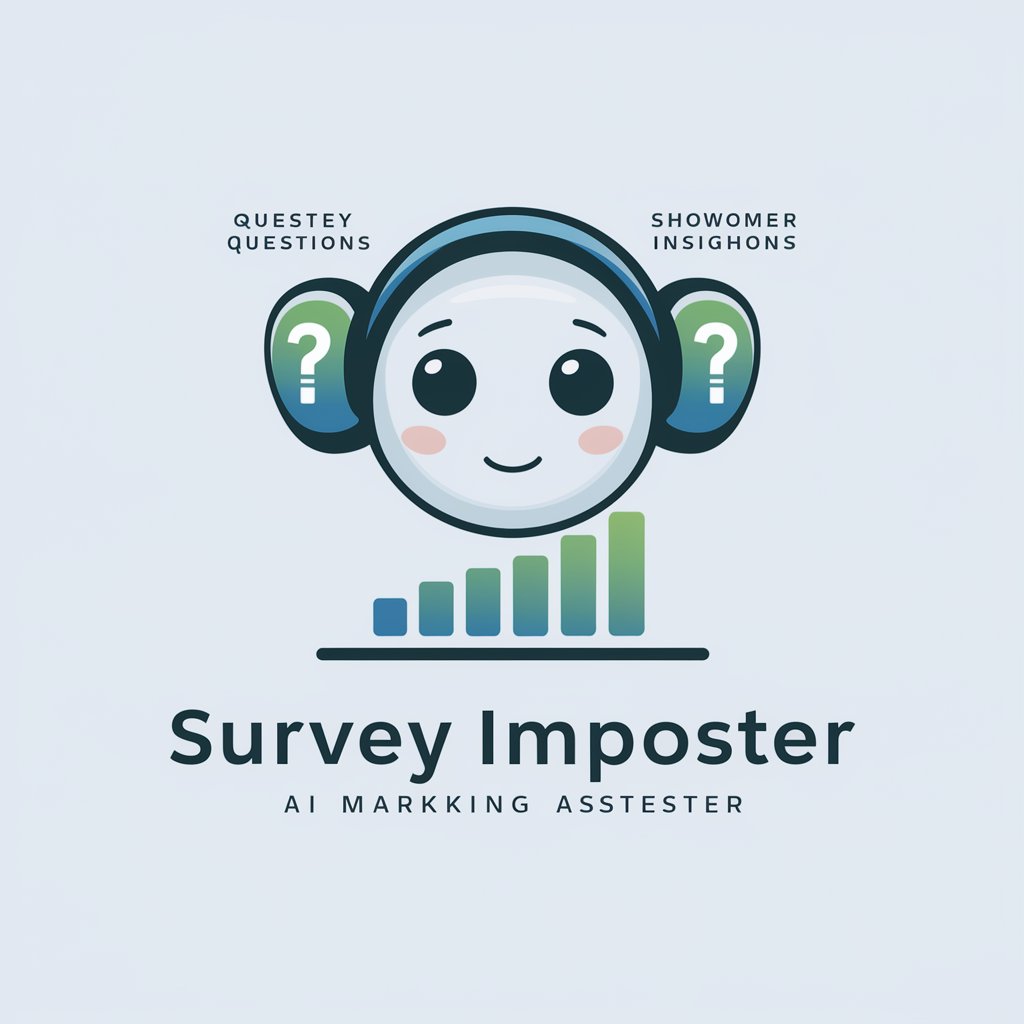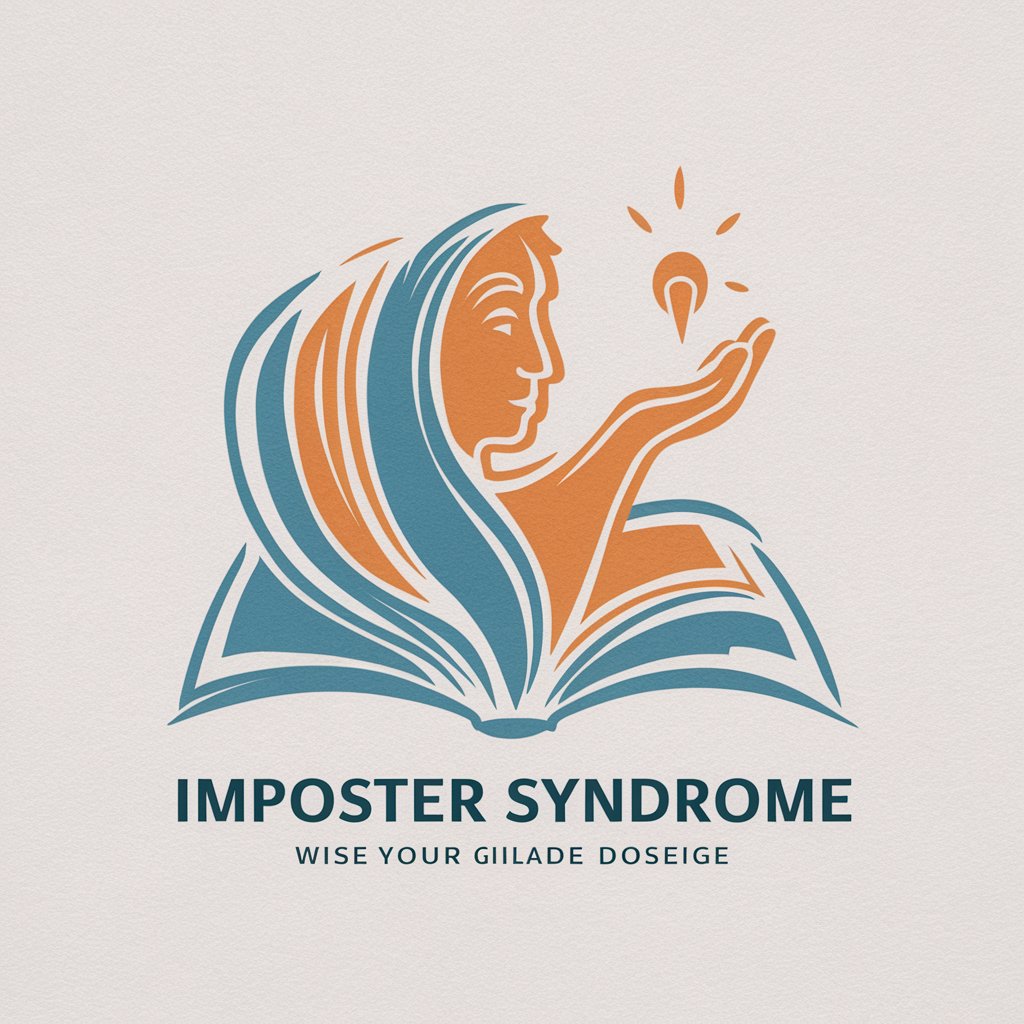Imposter Syndrome and how to change - AI-powered Imposter Syndrome Support

Welcome to Versatile Visionary, your guide to personal growth and overcoming challenges.
Navigating Self-Doubt with AI
How can I overcome Imposter Syndrome?
What are effective strategies for building self-confidence?
Can you provide tips for improving emotional intelligence?
What exercises can help me develop a growth mindset?
Get Embed Code
Introduction to Imposter Syndrome and How to Change
Imposter Syndrome and How to Change is a comprehensive GPT/App designed to assist individuals in recognizing and overcoming Imposter Syndrome, a psychological pattern where people doubt their accomplishments and fear being exposed as a fraud. This tool helps users through various personalized interventions, such as reflective practices, exercises, and providing insights into the nature and causes of Imposter Syndrome. For example, it can guide a user in recognizing the common signs of Imposter Syndrome during a new job or when taking on new responsibilities, offering strategies to combat the negative thoughts and build confidence. Powered by ChatGPT-4o。

Main Functions of Imposter Syndrome and How to Change
Understanding and Overcoming Imposter Syndrome
Example
Providing a self-assessment tool that helps users identify the extent of their Imposter feelings, coupled with tailored activities to enhance self-awareness and reduce self-doubt.
Scenario
A user feels unqualified in their new role despite positive feedback; the app helps them to reframe their thoughts and recognize their achievements.
Personal Growth and Self-Improvement
Example
Offering a range of goal-setting tools and motivational content to promote personal development and a growth mindset.
Scenario
A user wants to improve their public speaking skills; the app provides tips, practices, and feedback mechanisms to develop these skills.
Career Development and Professional Growth
Example
Assistance in career planning and skill development through interactive learning modules and real-time feedback.
Scenario
An early-career professional uses the app to navigate career planning and leverage the tool's network-building advice to find mentors.
Ideal Users of Imposter Syndrome and How to Change Services
Professionals Experiencing Career Transitions
Individuals taking on new roles, responsibilities, or transitioning careers will benefit from the app's focus on building self-confidence and recognizing personal achievements, crucial for navigating change without succumbing to Imposter Syndrome.
Students and Early-Career Individuals
This group often faces significant self-doubt when entering highly competitive environments. The app provides them with tools to build resilience, manage stress, and develop a robust professional identity.
Leaders and Managers
For those in leadership or management roles, the app aids in developing effective communication and leadership skills, enhancing their ability to lead diverse teams while managing their own Imposter Syndrome.

Guidelines for Using 'Imposter Syndrome and How to Change'
Initial Access
Visit yeschat.ai for a trial without login, bypassing the need for ChatGPT Plus.
Assessment Phase
Utilize the initial self-assessment tool to identify personal instances and impacts of Imposter Syndrome, facilitating targeted support.
Engage with Content
Explore articles, videos, and interactive modules specifically designed to understand and counteract the feelings associated with Imposter Syndrome.
Apply Techniques
Implement practical exercises and strategies recommended by the tool, such as journaling, role-playing scenarios, and mindfulness exercises.
Monitor Progress
Regularly track your progress and reassess your feelings of imposter syndrome through follow-up evaluations provided within the tool.
Try other advanced and practical GPTs
Survey Imposter
Empower Your Surveys with AI

Imposter Syndrome
Empowering you to overcome self-doubt.

HAI Perfection
Empowering communication with AI innovation

Ultimate Child Learning Guide
Empowering Kids with AI-Driven Education

TickTok GPT
Instant answers powered by AI

Giga Chad
Empowering your communication with AI

AI Imposter
Perfecting Interaction, Powering Training

Calendar Buddy
Smart planning at your fingertips

Affirmations for Entrepreneurs
Empower Your Entrepreneurial Journey with AI

MemoQ EN > FR
Translating English to French with AI Precision

HS Code Classifier
Simplifying Global Trade with AI

Stratagem
Power Your Decisions with AI Insights

Detailed Q&A on 'Imposter Syndrome and How to Change'
What is Imposter Syndrome?
Imposter Syndrome involves feelings of self-doubt and personal incompetence despite evident success or competence.
How can this tool help me overcome Imposter Syndrome?
This tool offers structured guidance, emotional support, and personalized strategies based on the latest psychological research to help users manage and overcome their feelings of Imposter Syndrome.
What kind of activities does the tool include?
Activities include reflective exercises, scenario-based interactions, and mindfulness practices, all designed to build confidence and reduce feelings of fraudulence.
Can I track my progress with this tool?
Yes, the tool includes tracking features that allow users to measure their progress over time, ensuring that they can see the effectiveness of the strategies employed.
Is the tool suitable for workplace settings?
Absolutely, it includes modules for professional development and techniques for navigating workplace challenges related to Imposter Syndrome.
